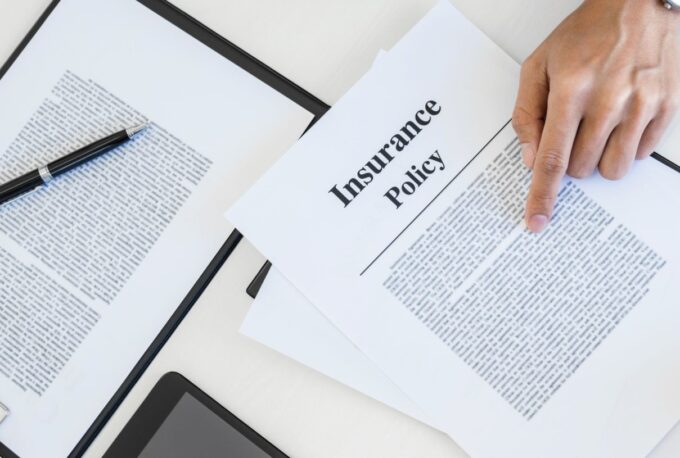You’ve probably seen it happen: You call for an insurance quote, and then when you’ve had a chance to make a decision, the quote is higher than it was before. Only a few days have passed, so what happened? Why did the insurance quote change? It can be confusing. Luckily, we have this handy infographic from Marketwatch to help.
Insurance Analysis

Insurance premiums seem straightforward, but the reality is that quotes are generated with many complicated algorithms. When you request a quote online, the insurance company will analyze patterns and statistics to return a quote to you. A factor that did not exist a few days ago might now exist in that analysis when they give you the most recent car insurance quote.
Remember, insurance companies don’t just look at your history. They compare your stats against people in a similar demographic. For example, consider young drivers. Quotes for young drivers are typically higher than for older people because they are largely inexperienced and more likely to file a claim.
You may be someone lumped into the young driver category, but you’re an impeccable driver. When it comes to insurance analysis, the way other people drive in your demographic will make a difference in the type of quote you receive. Another thing that can cause an insurance quote to go up is the number of filed claims where you live.
Suppose your area happens to undergo a significant weather event like a hurricane between the time you called about a claim and the time you decide to finalize with the company. In that case, the chances of more claims being filed will be higher. More claims equal higher quotes for everyone in that area who did not already have coverage.
Maybe You Moved

Where you live has a significant impact on the quotes you receive. If you move to an area that has a higher crime rate, your insurance quote reflects that because it is expected that more claims will be filed from people that live there. Likewise, if you move to a community with a higher property value, your insurance quote will also increase because it would take more to cover a claim in that area.
Alternatively, if you live somewhere where the crime rate is significantly lower, you’re also likely to have a lower insurance quote because they won’t expect as many claims. Additionally, your quotes will also be less compared to a more affluent location if you live in an average middle-class neighborhood.
The difference between owning and renting a home can also cause a change in your insurance quote. If you rent an apartment, your quote will likely be higher than if you rent a single-family home, depending on the location of either. On the other hand, if you own your home, your insurance rate will be even lower because statistics show that homeowners file fewer claims.
You Got a New Job

First, congratulations on getting a new job—that’s difficult for some in today’s pandemic world. If you got a new job, that could affect your quotes, too. Your job can make you appear riskier as a driver. For example, if you’re a delivery driver for one of the many companies out there like Instacart or Shipt, your quote will go up significantly.
The reason it goes up is that you’re driving more than the average person, and they have to weigh you against a whole different demographic. They might even have to put you into another insurance category to get you appropriate coverage. Some companies will also not cover you if you do this for a job because, for them, it’s not worth the risk.
If you’re promoted to a new job within the company you’ve been at for years, you’re not as high of a risk. A shiny new title that puts you higher up within a different company makes you more likely to get lower rates. Simply put, if your job is risky, your quotes will be higher. Even a surgeon is more likely to pay higher rates than a teacher.
Drivers Have Changed

Adding or removing a driver can make a big difference in your quotes, especially if you’re adding a new driver. Your teen is super excited about finally having a driver’s license, but the reality is that it will cost a pretty penny to add them. Young drivers are considered high-risk. Older people are also considered high-risk if they’re over 60 years young.
The general consensus is that younger drivers are inexperienced, and older drivers have slower response times and more health issues. When looking at those factors and related statistics, insurance quotes go up. There’s a solid age group between mid-20s to about mid-50s where you can get a decent quote as long as your driving history is clear.
If any of these people who are added to your policy, young or old, have less than stellar driving records, you’re looking at an increase in premiums, too. The insurance reps will look them up to verify their records, and if there is something you don’t know about, you’ll find out when you experience whiplash at hearing that quote. It means someone has some explaining to do.
There Are Too Many Inquiries

Most insurance companies will run a credit check to see where your credit score lies to give you a good insurance quote. Some do a soft check that doesn’t hurt your score, and others do a hard check. A hard check can significantly impact your credit score, so if you have it checked too often, that doesn’t look good to other companies or your score.
It’s also possible to make too many inquiries on your driving history. Every time you apply for a car insurance quote, your history is looked at. They check for violations, accidents, or any claims that have been filed in the past. What you do next is critical to your quote—be upfront about anything that has happened where your insurance company was contacted. If you lie, and they catch it, your insurance premiums can go up because they’ll see you as untrustworthy.
Insurance companies understand that violations and accidents happen. It’s why they exist and why these reps have jobs. Be honest about what you’ve got going on in your driving history and your credit. If they ask you about any debts that you have, always tell them the truth because they’ll find out one way or another. If they find out you lied, you’re going to have consequences in the form of higher premiums.
Quotes Change—It’s Normal
Expect to have a difference in quotes between companies, too. They each have a different set of statistics and patterns they analyze to give you your quote. Where you live can make a difference, but don’t lie about it for the sake of a lower premium. Doing so can void your coverage if you file a claim and the location is wrong.
When you get a new job, let the insurance company know so they are appropriately equipped to handle anything that might come up in the future. Also, keep them informed about any drivers that need to be added to or removed from your policy, and be careful about inquiries. Remember not to get more than about five at a time to minimize the impact on your credit.










